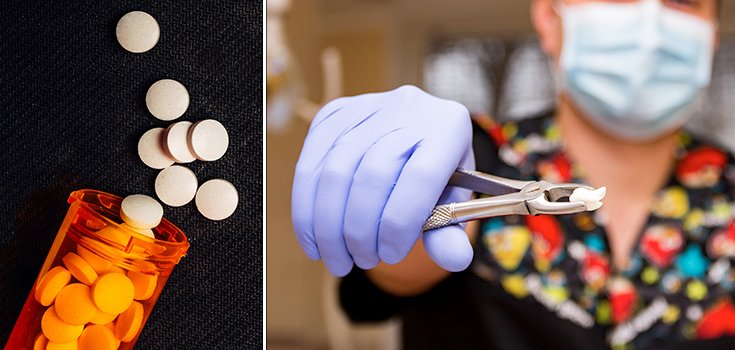Study Suggests Opioids for Wisdom Teeth Removal May Lead to Addiction

Having your wisdom teeth removed is sort of a painful rite of passage, but at least one problem arises from this procedure: the prescribing of dangerous opioids to deal with the post-surgical pain. Could this prime kids for addiction? It’s a distinct possibility, according to a recent study by scientists from the University of Michigan. [1]
The findings show that young people between the ages of 13 and 30 are nearly 3 times more likely to continue filling opioid prescriptions after having their wisdom teeth surgically removed.
For the study, researchers looked at 71,000 insured people from 2009 to 2015. Out of that number, about 60,000 filled a prescription for opioids immediately following surgery. The team specifically focused on young people considered “opioid naive” – those who hadn’t filled an opioid prescription in the 6 months prior to having their wisdom teeth extracted, and who didn’t have any other procedures requiring anesthesia in the year following. [1] [2]
Read: Opioid Use Now Tops Tobacco Use in the U.S.
The study found that individuals in their teens and 20’s had the highest odds of persistent opioid use after having their wisdom teeth removed, especially if they filled that initial prescription. The odds of persistent opioid use increased even further if they suffered from mental health conditions such as depression and anxiety, or chronic pain conditions. [1] [2]
Among the 5 million or so people who had their wisdom teeth extracted during the study period, the most commonly-prescribed opioid is Vicodin, which contains a combination of acetaminophen (Tylenol) and hydrocodone (opioid). [1]
Since the data only show opioid prescriptions filled, the study could not examine patients’ actual use of the painkillers. It was also impossible to determine why the later opioid prescriptions were filled by those who graduated to persistent use. [2]
Previous studies point to a greater likelihood of persistent opioid use after elective surgeries among new opioid users, with one 2017 study going so far as to call persistent opioid use a “previously underappreciated surgical complication that warrants increased awareness.” [1]
Read: Deaths from Prescription Painkillers Triple in 20 Years
The findings support the American Dental Association’s (ADA) 2016 policy statement that dentists should “consider NSAIDs as the first-line therapy for acute pain management.”
Yet, despite all the attention focused on the opioid epidemic in recent years, opioid prescriptions have continued to increase.
Dr. Calista Harbaugh, a general surgery resident at the University of Michigan, said:
“From our findings, we should strongly consider not prescribing any opioids routinely after wisdom teeth are pulled. Particularly since there is evidence that anti-inflammatories may be just as good, if not better, for pain management after wisdom teeth are pulled.”
Read: 4 Natural (Legal) Herbs for Pain Relief You Don’t Know About
Harbaugh’s conclusion is based at least partly on a scientific review of studies published in April that found that non-steroidal anti-inflammatory drugs (NSAIDs) alone or in combination with acetaminophen are more effective at treating pain with fewer side effects compared to opioids.
She added:
“Teens and young adults are an important population to understand the effects of exposure to opioids for predictable reasons, like having wisdom teeth pulled. They are vulnerable from the standpoint of ongoing development as well as social pressures.”
The study is published in JAMA.
Sources:
[1] ABC News
[2] Futurity
